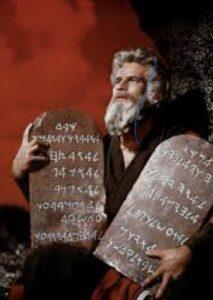I have been pondering about both the New and Old Testament Biblical principles. I can imagine that the Jews, especially their Pharisee teachers, must have been flabbergasted that the Mosaic Law was rendered irrelevant by the Messiah-Jesus. But I realize that this issue remains an important matter of contention (at least in me). I have carefully considered the arguments that reproach those who try to do away with God’s laws while, at the same time, questioning if God needed a human to defend his laws. I understand that I do not need to sacrifice animals nor do any rituals to get right with God and I understand that if I were to follow the law, it would include all 613 laws in the Old Testament (James 2:10).

Yet as I interact with the different teachings, there is an emphasis of faith in Jesus, while at the same time following some Mosaic principles. What makes some laws more relevant to us after going into the New Testament with Christ and why are we following some laws while rendering others void? Are these Christian guiding laws determined by man’s understanding and manuals, or are they guided by the spirit of the Lord?
Most confusion comes because of the vivid examples of the Messiah breaking a number of laws during his earthly ministry and also Paul’s teachings in Galatians. Paul first explains that Moses’ laws were a short-term extension of the Abrahamic promises, yet indicated that it was impossible to keep the law (Galatians 6:13). He also indicates that keeping the law is not able to save us, only the faith we have in Christ. He also indicates that receiving the spirit was by faith. So why should we apply principles and keep laws that are impossible to follow? Should it not be the Holy Spirit guiding our course?
I have come to God about this confusion and received answers for myself. I would recommend you to go to the Word and seek God in prayer. God will tell you something. Yet His instruction, depending on your circumstances and His true understanding of you, may have a different answer from me; however that does not make God wrong or contradictory.



